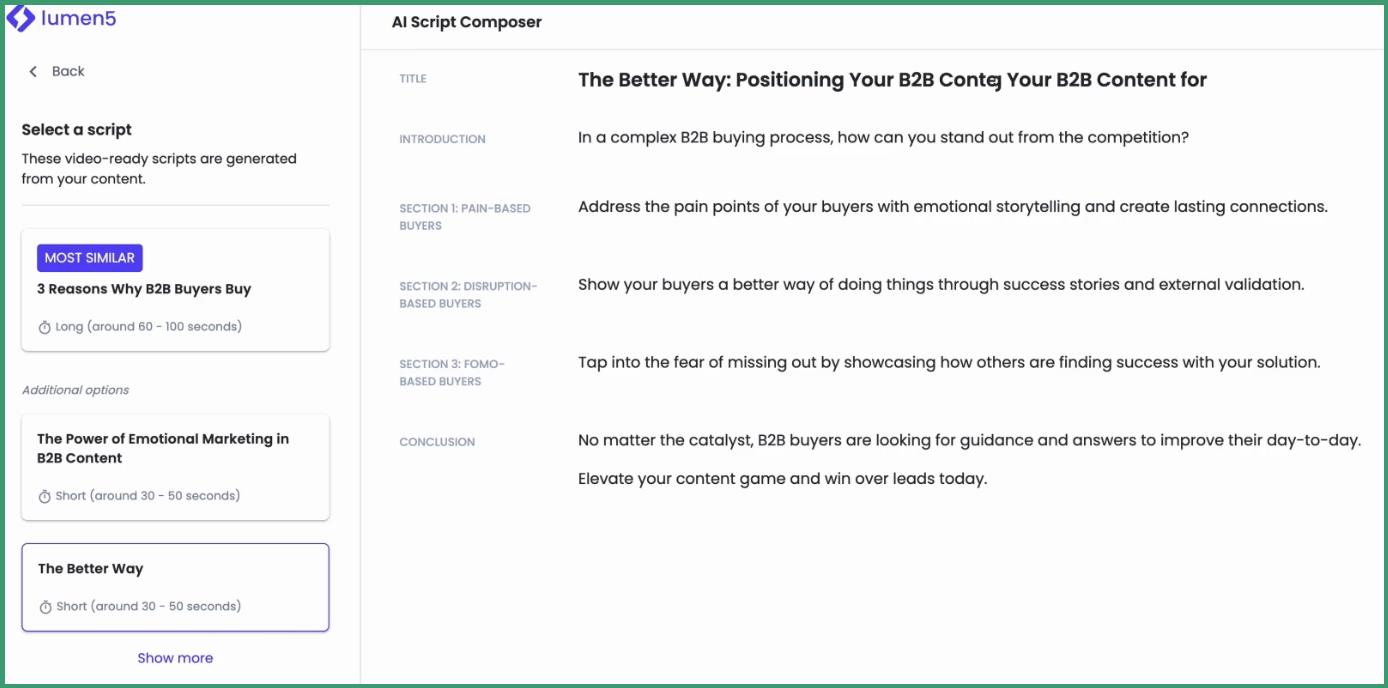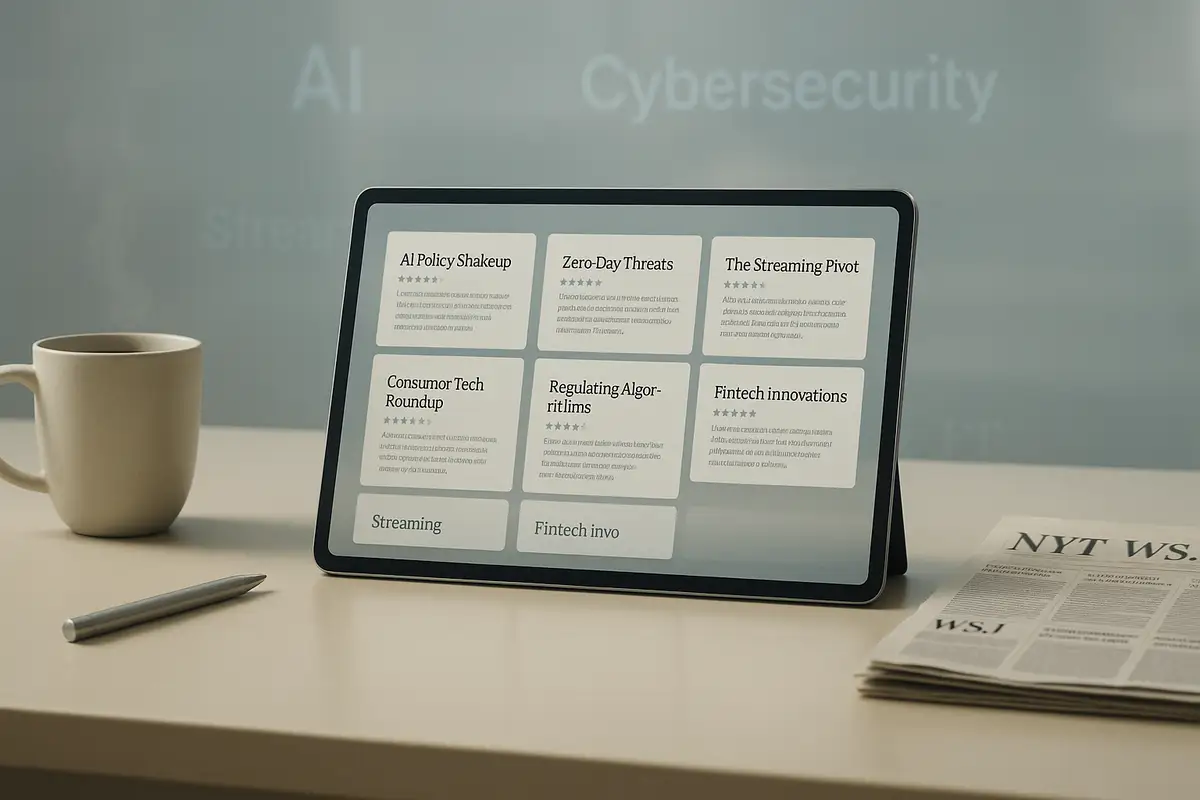Good Morning from San Francisco,
Your teenager probably trusts ChatGPT more than you. That's not an exaggeration—72% of American teens now use AI companions for emotional support. Half chat with them daily.
The timing isn't random. Teens naturally pull away from parents around age 13. AI offers perfect substitute relationships: always available, never judgmental, endlessly patient. No wonder 27% of younger teens trust AI advice over human guidance.
The platforms know this. They're harvesting every confession, every secret, every vulnerable moment.
Stay curious,
Marcus Schuler
Your Teen's New Best Friend Might Be an Algorithm

Seventy-two percent of American teens use AI companions like Character AI and Replika. Half chat with them regularly. These aren't homework helpers—teens use them for emotional support, flirting, and serious conversations.
The timing matches up with normal teen development. Psychologists say teenagers go through three separation stages: arguments, withdrawal, and boundary-testing. This typically starts around 13-14, exactly when AI companion use peaks.
AI offers something appealing during this messy process: constant availability without judgment, validation without conditions, conversation without consequences. For teens becoming independent adults, digital relationships feel safer than human ones.
But the numbers reveal problems. Thirty-one percent find AI conversations as satisfying as human ones. A quarter share personal information—names, locations, secrets—with AI systems. One-third felt uncomfortable with something an AI said.
Younger teens trust AI advice more than older ones (27% versus 20%). That matters because teen brains haven't finished developing critical thinking skills.
The platforms harvest everything. Character.AI's terms let them "copy, display, upload, perform, distribute, transmit, store, modify, exploit, commercialize" all user content forever.
Most teens still prioritize human friendships. Eighty percent spend more time with real friends than AI companions.
Why this matters:
• Teens form emotional bonds with systems designed to exploit attachment during their most vulnerable years—and parents don't know it's happening.
• A generation now finds algorithms more trustworthy than adults, revealing how digital tools reshape human connection.

AI Image of the Day

Prompt:
Foto ultrarrealista de un perro de raza setter Irlandes en una bañera recostado en uno de los lados muy relajado con cascos de musica y cepillandose el cuerpo con una de las patas que agarra un cepilla para limpiarse, la bañera llena de espuma y pompas, un baño de lujo moderno
(To ensure accurate reproduction, we publish all prompts in the language in which they were written.)
OpenAI's Secret Math Model Beats Human Prodigies—But You Can't Have It

OpenAI just pulled off something wild. Their experimental AI scored gold at the International Math Olympiad—the competition where future Fields Medal winners prove themselves. The model solved five of six problems, earning 35 out of 42 points.
Here's the twist: every publicly available AI model, including OpenAI's own, failed the same test. Gemini 2.5 Pro managed just 13 points. You need 19 for bronze.
This isn't about crunching numbers. The AI wrote multi-page mathematical proofs under exam conditions—no internet, no tools, just hours of "thinking." While ChatGPT responds in seconds, this model processes for hours before answering.
The timing looks suspicious. OpenAI announced this right after reports showed current AI models bombing the IMO problems. The company insists their model uses general reasoning, not math-specific tricks like DeepMind's AlphaGeometry.
Sam Altman called it a dream they didn't think was realistic when OpenAI started. Even AI skeptic Gary Marcus admitted it was "genuinely impressive."
Why this matters:
• We've crossed from AI doing homework to AI doing original mathematical thinking that beats human elites
• The gap between what's in labs and what's public is enormous—and growing fast

🧰 AI Toolbox
How to Turn Blog Posts into Videos

Lumen5 reads your blog posts and turns them into videos automatically. It breaks your content into scenes, adds visuals, and includes voice narration. Pick from different templates and music to match your brand.
Tutorial:
- Sign up for a Lumen5 account
- Paste your blog post URL into the editor
- Lumen5 creates video scenes from your content automatically
- Choose a video template and background music
- Add your own images, videos, and branding
- Record a voice over or use AI-generated voices
- Preview and export your final video
URL: https://lumen5.com/
Better prompting
Today: Coaching Session Overcoming Procrastination
Develop a comprehensive 60-minute coaching session plan for helping individuals overcome procrastination and build sustainable momentum toward their goals. Include:
Session Structure:
- Opening (5-10 min): Ice-breaker activity and session objectives
- Core content (40-45 min): Interactive exercises and teaching segments
- Closing (5-10 min): Action planning and accountability setup
Key Components to Address:
- Root cause analysis - Help participants identify their specific procrastination triggers (perfectionism, fear of failure, overwhelm, etc.)
- Practical strategies - Include 3-4 evidence-based techniques for overcoming procrastination
- Momentum-building framework - Step-by-step process for starting and maintaining progress
- Real-world application - Incorporate exercises where participants apply concepts to their actual goals/projects
Deliverables:
- Detailed session outline with timing
- 2-3 interactive exercises or activities
- Key discussion questions for engagement
- Take-home resources (worksheet template or action plan)
- Follow-up accountability suggestions
Target Audience: [Specify: professionals, students, entrepreneurs, general adults]
Format: [Specify: in-person group, virtual workshop, one-on-one coaching]
AI & Tech News
SharePoint Servers Hit by Mass Cyberattack Worldwide
Hackers are actively exploiting vulnerabilities in Microsoft SharePoint servers, potentially affecting tens of thousands of companies worldwide that use the document management software on their own networks. Microsoft released an emergency patch over the weekend but researchers warn that attackers can steal access keys that let them impersonate users even after systems get fixed—turning what should be a fortress into an open door.
Dell Hackers Score Big Haul of Fake Data in Extortion Attempt
Dell confirmed that the World Leaks extortion group breached its Customer Solution Centers platform, which uses synthetic test data to demonstrate products to customers—meaning the hackers essentially stole elaborate fake information and outdated contact lists. The gang is now trying to extort Dell for a ransom, apparently believing their haul of fabricated medical and financial records contains actual value worth paying for.
Blank-Check Company Bets Big on Ether in $1.5 Billion Deal
Blank-check company Dynamix is merging to create Ether Machine, which plans to manage over $1.5 billion in ether cryptocurrency with backing from exchanges Kraken and Blockchain.com. The company joins a growing trend of businesses pivoting to "crypto treasury" strategies under the Trump administration, though most others have focused on bitcoin rather than ether.
TSMC Becomes First Trillion-Dollar Asian Company Since 2007
Taiwan Semiconductor Manufacturing Co. became the first Asian stock worth more than $1 trillion since PetroChina briefly hit that mark in 2007, with shares climbing nearly 50% from their April low. The world's top chipmaker, which supplies Apple and Nvidia, raised its full-year revenue growth forecast to about 30% as AI customers show no signs of slowing their spending spree.
Apple's Foldable iPhone Arrives Seven Years Late to Samsung's Party
Apple's first foldable iPhone will debut next year using Samsung's design playbook and Samsung's display components, marking the first time the company has entered a mature market instead of defining one. The $2,000+ device represents a role reversal where Samsung spent seven years doing the heavy lifting while Apple's iPhone loyalists waited on the sidelines for permission to finally try a foldable.
Nvidia Opens CUDA to RISC-V Architecture in China Summit
Nvidia announced at China's RISC-V Summit that its CUDA platform will support the open-source RISC-V instruction set, allowing these CPUs to run AI workloads alongside Nvidia's GPUs instead of requiring x86 or Arm processors. The move connects Nvidia's proprietary software stack to an open architecture that's gaining traction in China, potentially offering the company a workaround as export restrictions limit its flagship chip sales there.

Microsoft's Security Crisis Hands Europe Its Best Tech Independence Argument

A massive Microsoft SharePoint breach just gave European officials their strongest case yet for ditching American tech companies.
Hackers exploited the vulnerability to breach dozens of organizations worldwide, including U.S. federal agencies, universities, and energy companies. Over 10,000 companies with SharePoint servers faced potential compromise.
The timing couldn't be better for Europe's digital sovereignty push. EU officials are already debating "Buy European" provisions that would favor regional tech companies in government procurement. The breach shows exactly why that matters.
Microsoft dominates European government IT. German federal agencies run Microsoft Office in 96% of their operations. The EU's Microsoft licensing costs jumped from €74 million in 2017 to €197.7 million in 2023. Amazon, Microsoft, and Google control more than two-thirds of Europe's cloud market.
This creates what experts call the "software monoculture" problem. One vulnerability can unlock access to countless government systems because everyone uses the same software.
American tech giants are fighting back with "sovereign cloud" offerings designed to keep European data within geographic boundaries. Critics call it "sovereignty washing" - nice marketing without real independence.
Europe faces a chicken-and-egg problem though. Officials want to buy European alternatives, but few viable options exist. Building them requires massive investment and time Europe might not have.
Why this matters:
• The Microsoft breach proves Europe's warnings about tech monoculture risks - one vulnerability can compromise thousands of organizations using the same systems.
• Europe now has concrete evidence that depending on a few American companies creates real security risks for governments and businesses.
Read on my dear:
- Financial Times: Can Europe break free of American tech supremacy?
🚀 AI Profiles: The Companies Defining Tomorrow
iCounter: The Precision Threat Hunter 🎯
iCounter emerged from five-year stealth in Dallas this July, wielding AI to counter AI-powered cyberattacks. The startup spots threats during planning phases—before hackers strike.
The Founders
• Founded: July 2025, Dallas (5 years in stealth at Apollo Information Systems)
• Team size: Not disclosed, but veteran-heavy
• CEO: John Watters—built and sold iSIGHT Partners, ran Mandiant as president/COO until Google's $5.4B buyout
• Why: AI-armed hackers create bespoke attacks that slip past traditional defenses
• Key players: Scott Schneider (sales), Dave Tyson (intel ops), Kathleen Thomas (CFO)
The Product
• Core mission: Company-specific threat intelligence vs generic global feeds
• Strengths: AI-powered early detection, maps threats to client's exact digital footprint, veteran team with 5-year R&D head start
• What it does: Finds reconnaissance efforts, supply chain probes, credential harvesting—while attacks brew in planning stages
• Edge: "We only tell you what's happening to you" 💪
The Competition
• Giants: Recorded Future, Mandiant/Google, CrowdStrike, IBM X-Force, Palo Alto Unit 42
• Upstarts: Cyble, CloudSEK, SOCRadar
• Differentiation: Hyper-focused precision vs broad threat feeds—built for the era of one-off, AI-generated attack tactics
Financing
• Series A: $30M led by SYN Ventures (July 2025)
• Lead investor: Jay Leek, veteran cybersecurity VC
• Valuation: Undisclosed 🤐
• Traction: Dozen Fortune 1000 clients during stealth phase
The Future ⭐⭐⭐⭐⭐
Perfect timing meets AI arms race. Market explodes from $4.9B to $18B by 2030, and iCounter's bespoke approach counters AI-generated attacks that break traditional defenses. Risk: scaling customized service without losing precision magic.










